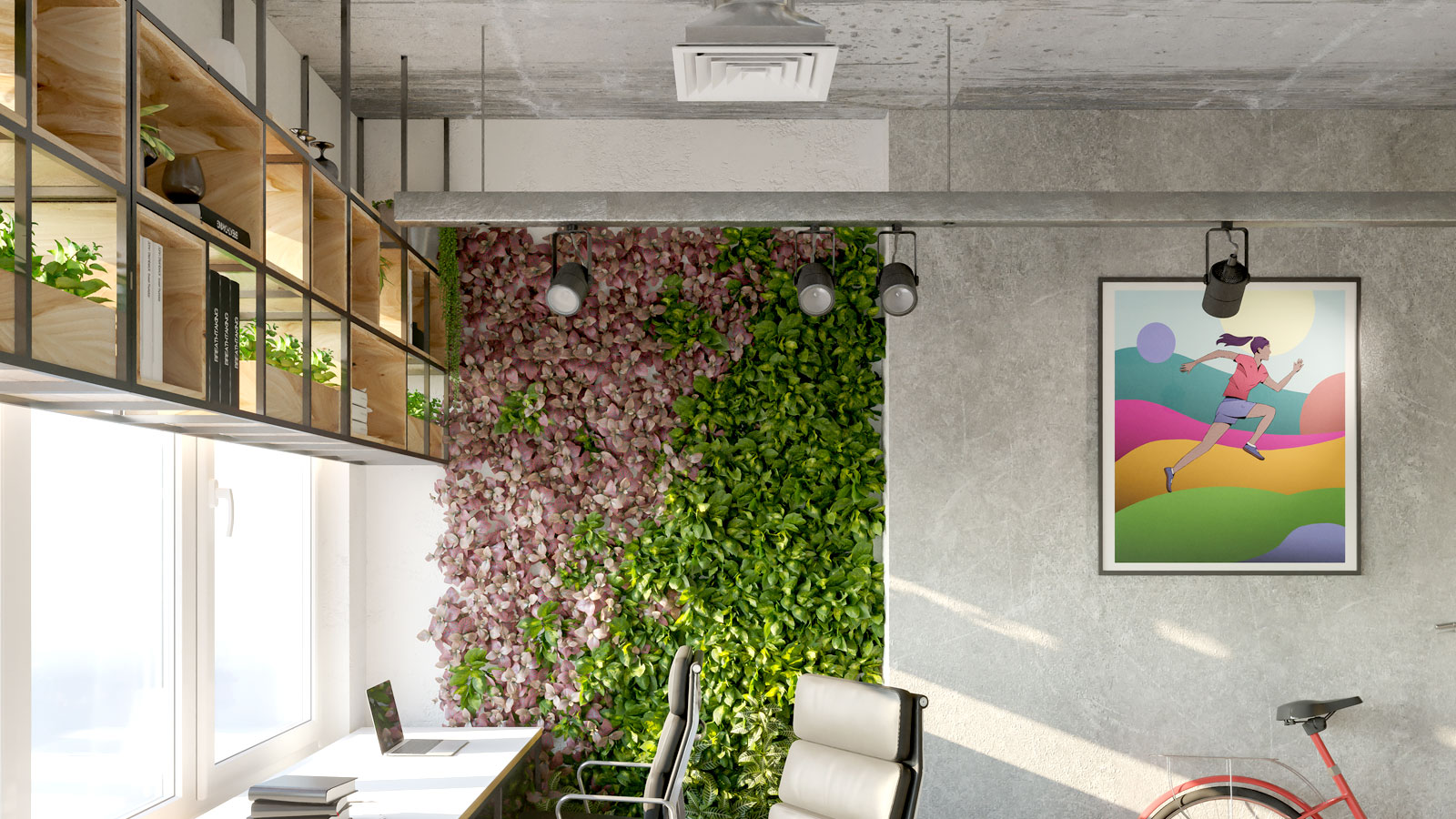Discover these bright ideas for a kitchen extension with bifold doors
A kitchen extension with bifold doors will create a welcoming space filled with natural light that can be opened to the outdoors — get inspired by these ideas
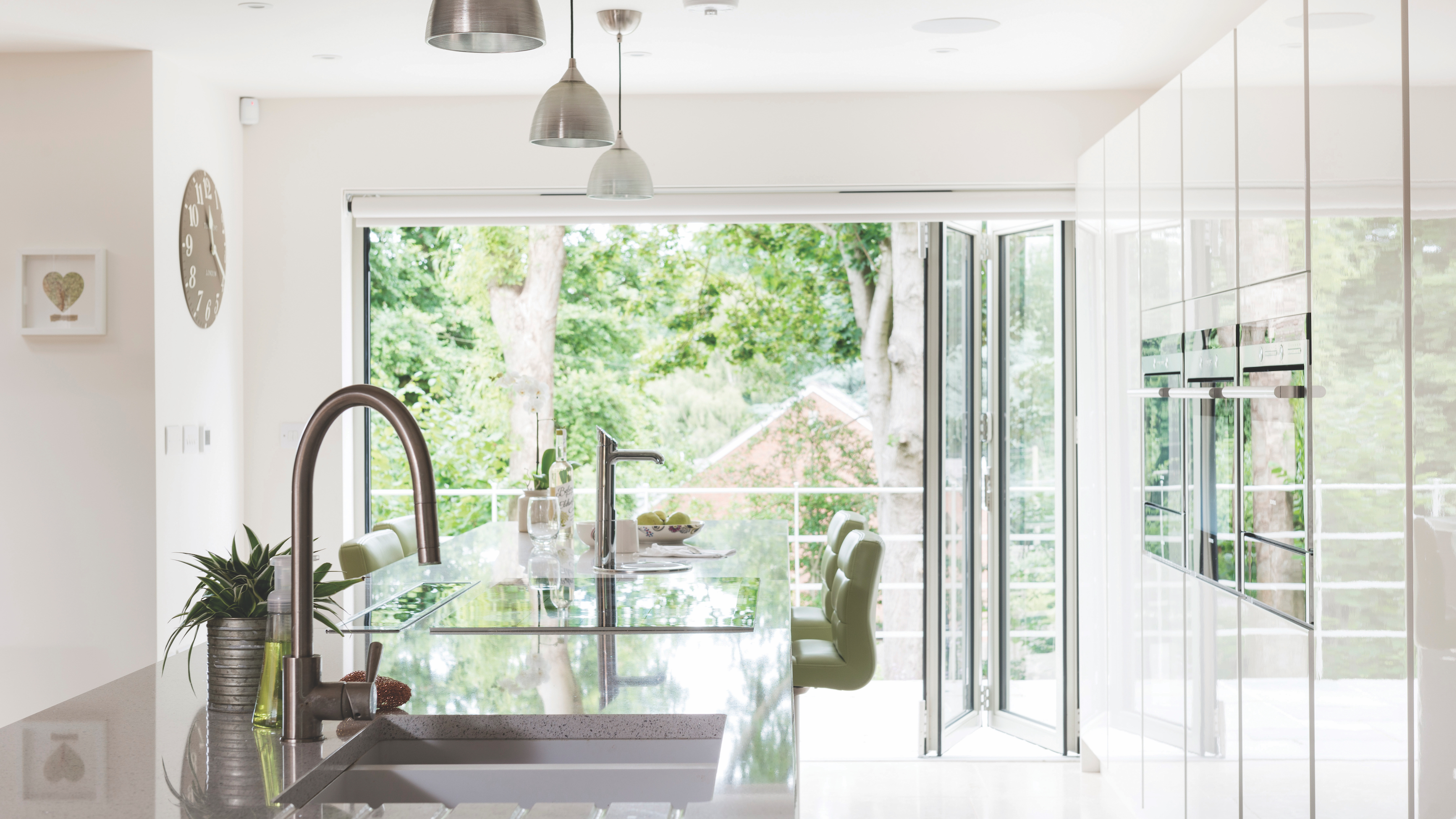
A kitchen extension with bifold doors can provide an opportunity to open up your home to the garden and fill the new space with natural light.
But there's more to adding this glazed feature to a kitchen extension than meets the eye and you'll need to make sure you design the doors to suit your lifestyle, your budget and the overall style of the extension.
Take a look at some great ideas below for kitchens with these beautiful door styles effortlessly integrated into the extension design.
How to add a kitchen extension with bifolds
You will need the advice of a structural engineer before adding bifold doors to a kitchen extension. They will specify the size of the steel to support the structural opening and structure above, even if this is a single storey extension.
And what about size? "Bifold doors need to have at least two panels to function. So, they need to be at least the size of a double door (just over a metre)," says Victoria Bricklesby, COO at Origin. "There is no ‘right’ size for a bifold, it all comes down to how much space is available and the overall look you are trying to achieve.
"Large expanses of glazing look fantastic and let in lots of natural light, but this approach may not be the most practical if it takes away wall space which is needed for shelving or kitchen cupboards. Equally, a two-panel bifold door can look out of place if installed on a long wall."
1. Create an indoor outdoor kitchen space
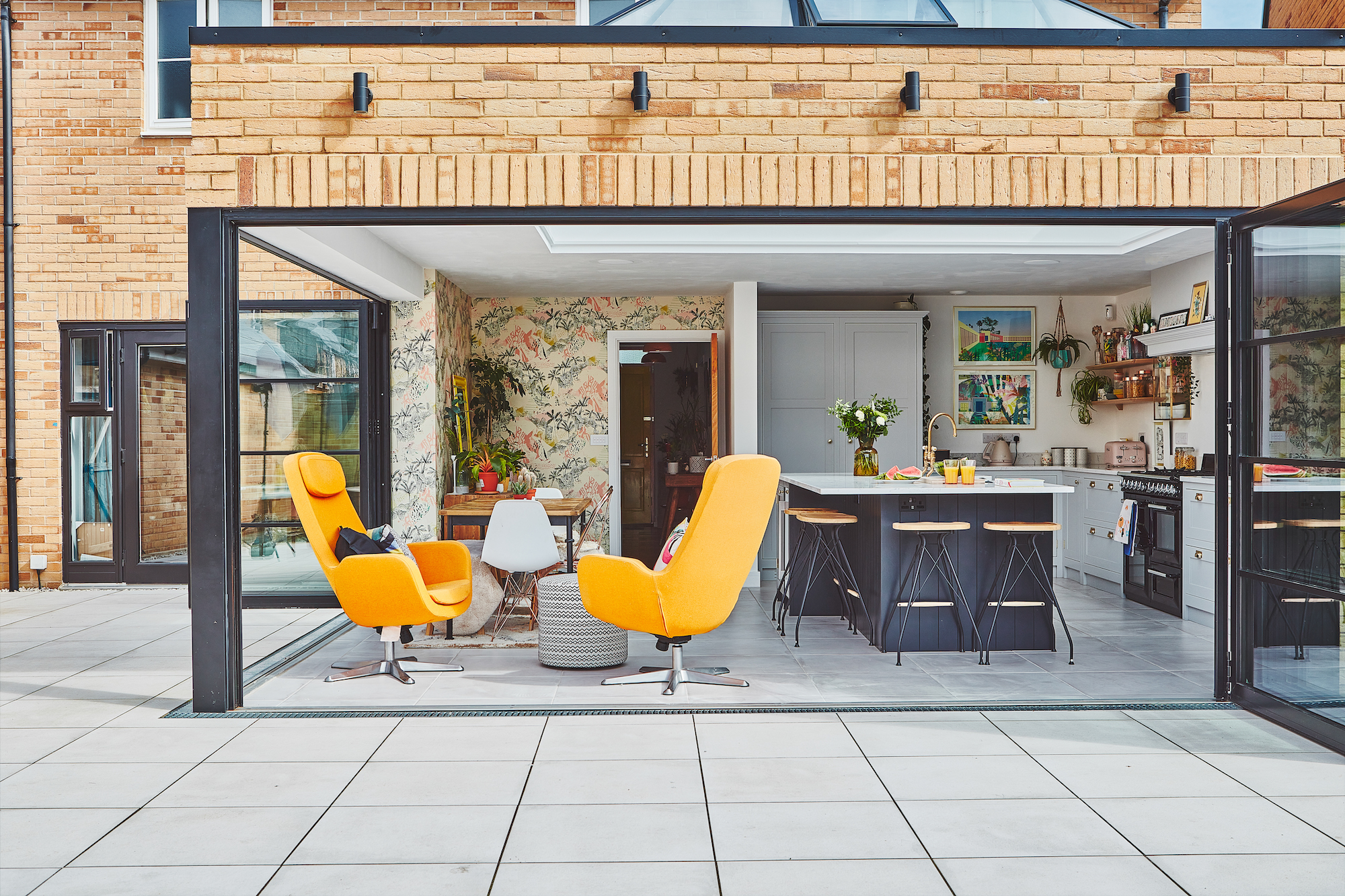
A key motivator behind installing bifold doors in a kitchen extension is to connect the inside and outside spaces. Bifolds alongside even small kitchen extension ideas will make the space feel bigger by visually giving the illusion that the indoor space extends out into the garden.
"The kitchen is often the hub of the home and is a central place for entertaining," advises Victoria Brocklesby. "Bifolds can create a seamless transition between the inside and outside, and they really open up the space for entertaining during the warmer months.
"Alongside their functionality, bifold doors allow lots of natural light to enter a room and offer widescreen views of the outside, which allows homeowners to admire their surroundings all year round. However, bifold doors are incredibly versatile, so are a great option for homes with more unusual configurations, such as a corner."
2. Combine bifolds with other glazing
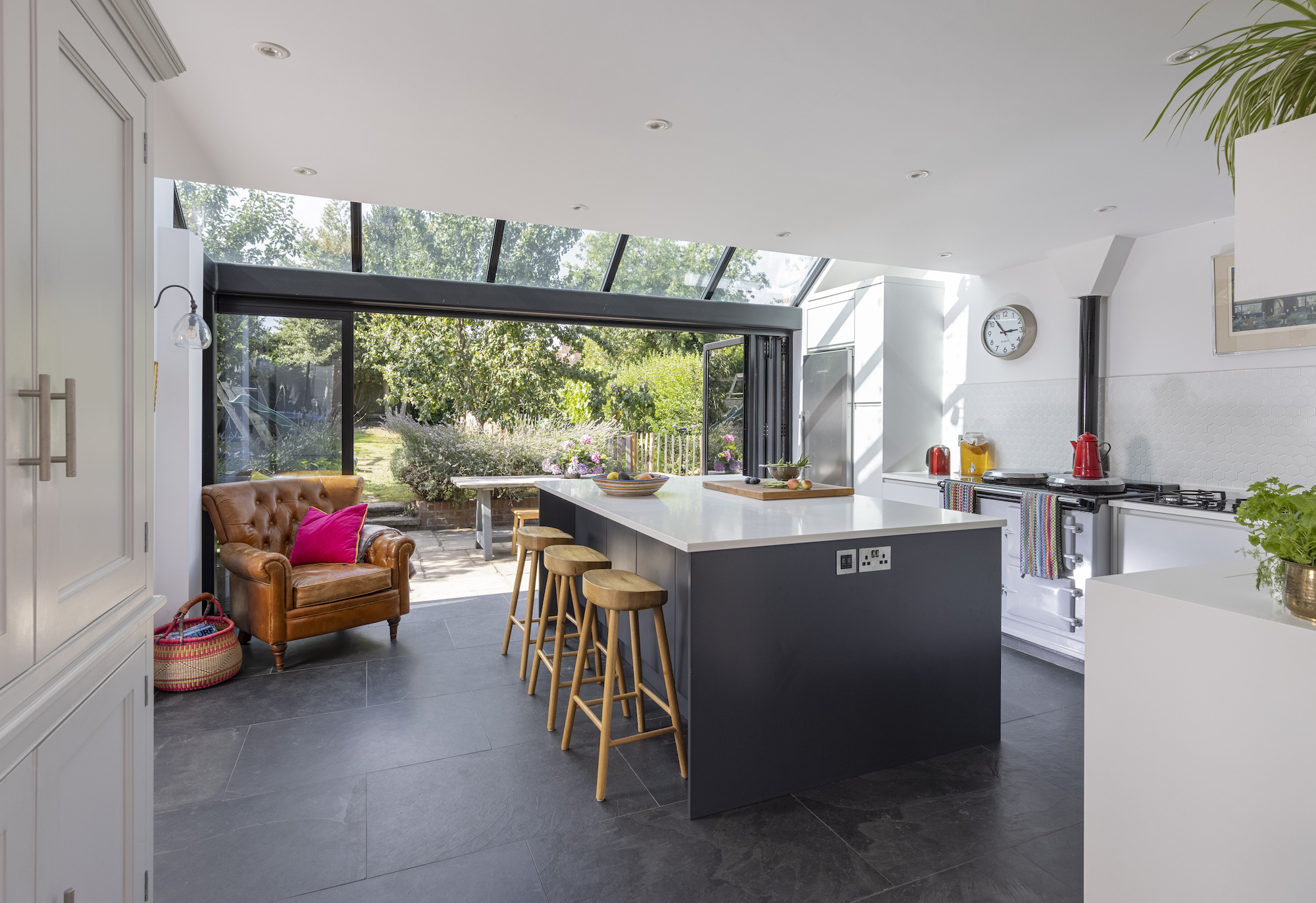
Bifold doors are great at introducing natural light and views horizontally, but don't forget about other places in the kitchen extension to create new pathways for light. Ceiling glazing and rooflights are fantastic places to start.
Many off-the-shelf standard sizes won't break the budget and a kitchen extension with skylights as well as bifolding doors creates a welcoming and enticing space.
This kitchen extension took ideas from conservatory kitchen extensions. The different angles of the light bounce around the room and infiltrate deeper into the floorplan.
3. Know your material and colour options

Choosing the size of your bifolds in one thing, but also consider how the material and colour choices will affect the overall aesthetic of your extension.
Timber can be painted pretty much any colour and offers a more classical charm while uPVC is a cheaper option and can these days be specified in a range of hues, not just white and anthracite.
"Aluminium bifold doors are inherently stronger and requires less maintenance than uPVC or timber, so can be a more practical option," adds Victoria Brocklesby.
4. Treat bifolds as more than just a feature when researching
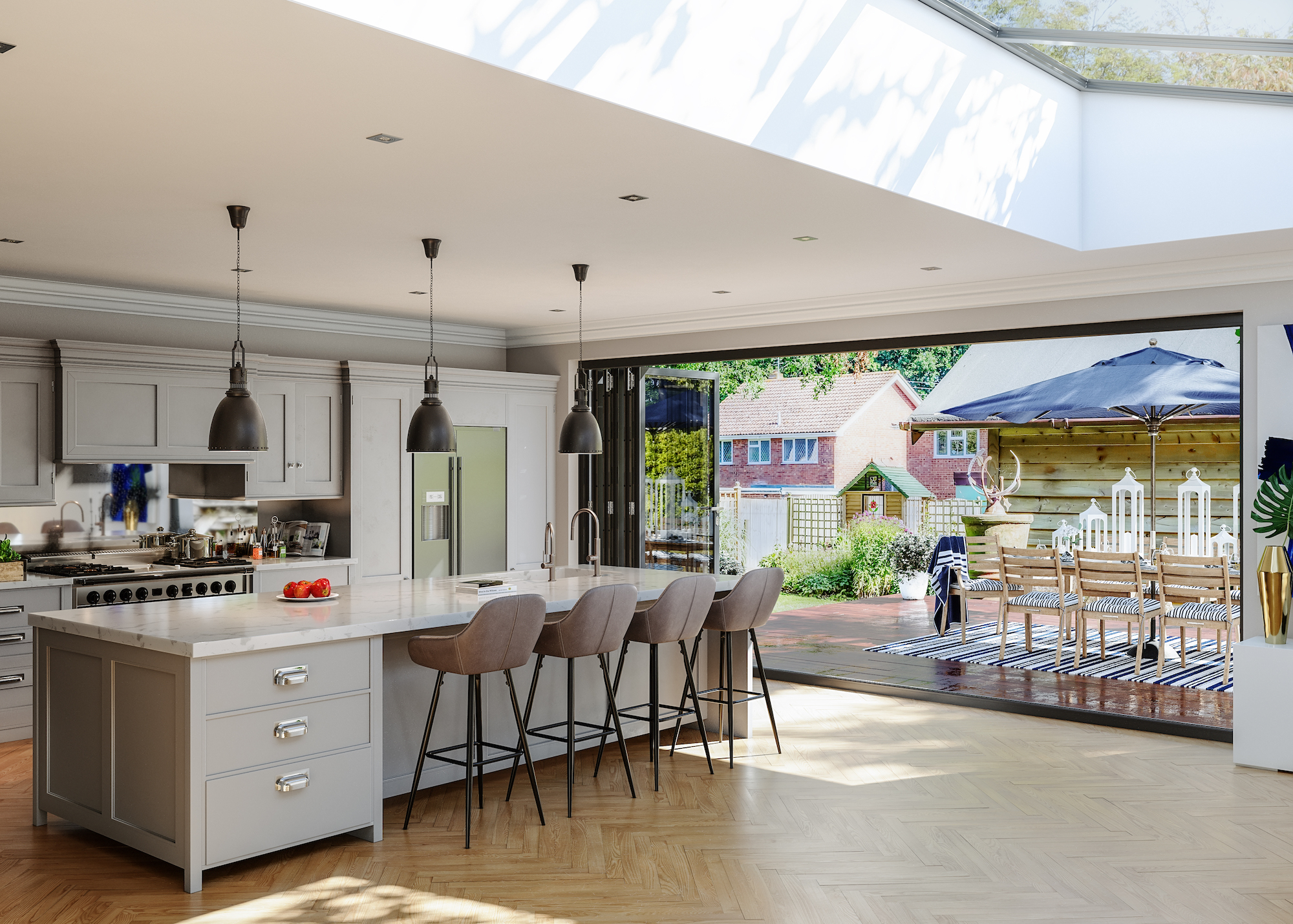
Really research every element of your chosen patio doors as this is not just a style addition, but will provide an entry point to your home or garden.
"A bifold door should be just as secure as a front door. Homeowners should look for doors that feature multi-point locking systems and security accreditations, such as Secured by Design, to ensure their property remains safe," warns Victoria Brocklesby.
"Bifold doors are an investment, so it’s important to choose a system which will last. While guarantees won’t tell you the entire picture, they are a good indicator of the quality of a product. For example, a manufacturer offering a 20-year guarantee is going to be more confident that its product will stand the test of time than a company offering a 5-year guarantee. Material is also an important factor."
5. Embrace the benefits of bifolds
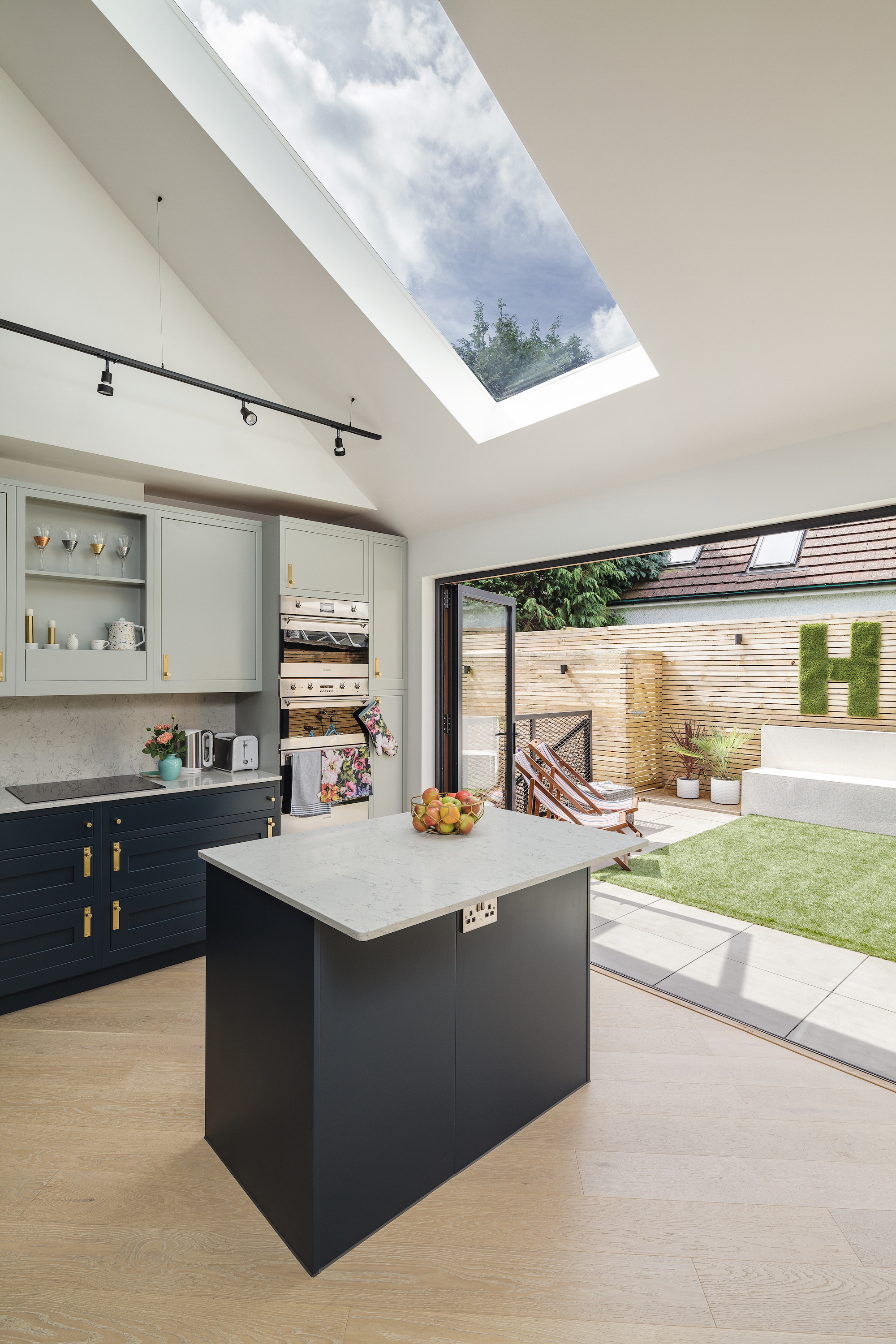
As bifolds capture a view of the garden, it's important to ensure that that view is also given some consideration. "Alongside their functionality, bifold doors allow lots of natural light to enter a room and offer widescreen views of the outside, which allows homeowners to admire their surroundings all year round," explains Victoria Brocklesby.
Use smart garden design and patio ideas to create an enticing space to view. Tricks like continuing the flooring type out into the garden (think timber for a decked areas, or porcelain tiles/flagstones for a patio) or creating clean eyelines to colourful raised beds work wonders alongside glazed doors.
6. Go for a double bank of bifolds
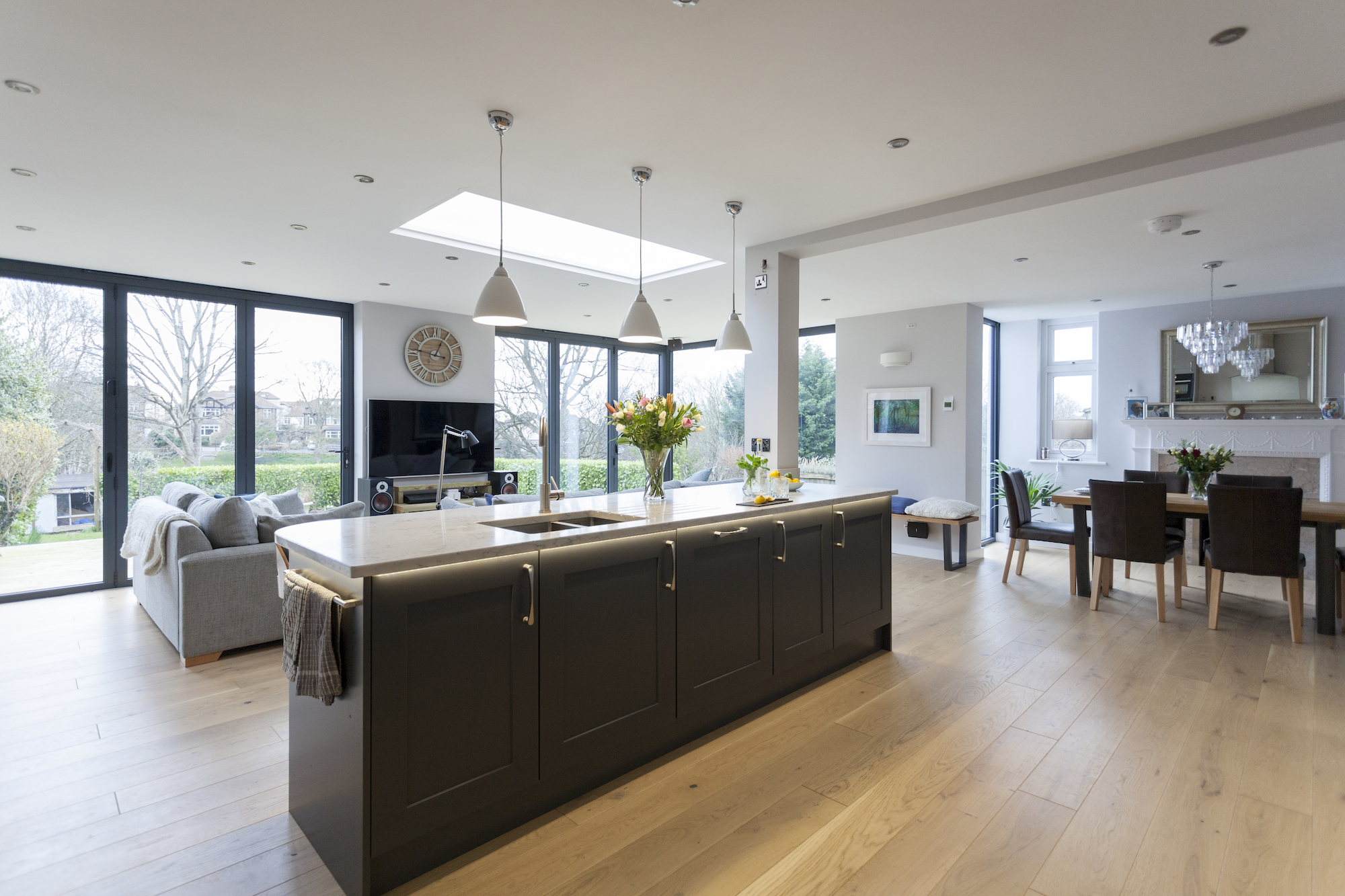
Why have just one bank of bifold doors when you can have two? This style works particularly well for large, open-plan spaces where the kitchen extension needs to have access and views just as much as a dining or seating area.
This light and bright kitchen diner extension also takes advantage of the sun's orientation around the house as corner bifolds (centre of image) will eke out every last ray of sunlight.
Get the Homebuilding & Renovating Newsletter
Bring your dream home to life with expert advice, how to guides and design inspiration. Sign up for our newsletter and get two free tickets to a Homebuilding & Renovating Show near you.
Amy is an interiors and renovation journalist. She is the former Assistant Editor of Homebuilding & Renovating, where she worked between 2018 and 2023. She has also been an editor for Independent Advisor, where she looked after homes content, including topics such as solar panels.
She has an interest in sustainable building methods and always has her eye on the latest design ideas. Amy has also interviewed countless self builders, renovators and extenders about their experiences.
She has renovated a mid-century home, together with her partner, on a DIY basis, undertaking tasks from fitting a kitchen to laying flooring. She is currently embarking on an energy-efficient overhaul of a 1800s cottage in Somerset.

